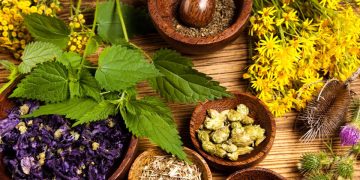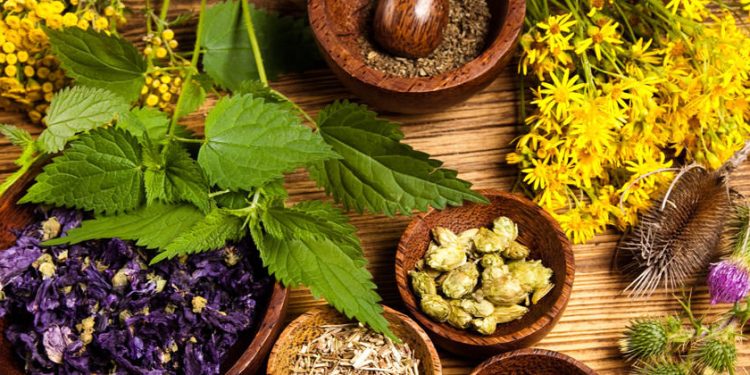In a world increasingly focused on health, wellness, and natural living, herbal natural supplements have gained significant attention. These plant-based remedies, rooted in ancient traditions and supported by modern research, offer a holistic alternative to synthetic drugs. As more people seek safe and effective ways to support their health, herbal supplements are emerging as a preferred choice for boosting immunity, enhancing energy, reducing stress, and managing chronic conditions.
What Are Herbal Natural Supplements?
Herbal natural supplements are products made from botanicals—plants used for their therapeutic properties. These include roots, leaves, seeds, bark, and flowers, either used individually or in combination. The active compounds found in these plants are extracted and formulated into various forms, such as capsules, powders, teas, tinctures, and oils.
Unlike pharmaceutical drugs that often target a specific symptom or condition, herbal remedies aim to balance the body as a whole. They support the body’s natural processes, often working gradually and gently with fewer side effects.
A Brief History of Herbal Medicine
Herbal medicine is not a new concept—it dates back thousands of years. Ancient cultures in China, India, Egypt, and Greece relied heavily on plant-based medicine. Traditional Chinese Medicine (TCM) and Ayurveda, India’s traditional medical system, both use complex herbal formulas that are still in practice today.
In recent years, Western countries have witnessed a revival of interest in these time-tested remedies, driven by a growing distrust of chemical-based treatments and a desire for a more natural lifestyle.
Popular Herbal Supplements and Their Benefits
- Turmeric (Curcuma longa)
Known for its anti-inflammatory and antioxidant properties, turmeric is widely used to manage joint pain, arthritis, and digestive issues. Its active compound, curcumin, is believed to help fight inflammation at the molecular level. - Ashwagandha (Withania somnifera)
A staple in Ayurvedic medicine, ashwagandha is classified as an adaptogen, meaning it helps the body manage stress. It’s also known to improve energy, reduce anxiety, and support immune function. - Echinacea
Commonly used to prevent or treat colds and respiratory infections, echinacea is believed to enhance immune system activity and reduce the severity and duration of illnesses. - Ginseng
Valued for its ability to boost energy, mental clarity, and immune function, ginseng is used in both Western and Eastern herbal traditions. - Milk Thistle (Silybum marianum)
Often used to support liver health, milk thistle contains silymarin, a compound believed to protect the liver from toxins and aid in regeneration. - Ginkgo Biloba
This herb is best known for its cognitive benefits. It’s believed to improve memory and concentration by increasing blood flow to the brain.
Benefits of Herbal Natural Supplements
- Natural Ingredients: Made from plants, herbs, and botanicals, these supplements are generally free of synthetic chemicals and preservatives.
- Fewer Side Effects: When used properly, herbal supplements tend to cause fewer side effects than pharmaceutical drugs.
- Holistic Approach: They often work on multiple systems of the body, promoting overall well-being rather than just treating symptoms.
- Preventive Care: Many herbs can be used regularly to strengthen the immune system and prevent illness before it starts.
Things to Keep in Mind
While herbal supplements offer many benefits, they are not without risks. Not all supplements are created equal—quality, dosage, and sourcing can vary significantly. It’s important to choose products from reputable manufacturers that follow good manufacturing practices (GMP).
Moreover, herbal supplements can interact with prescription medications. For instance, St. John’s Wort, commonly used for depression, may interfere with antidepressants, birth control pills, and other drugs. Therefore, consulting with a healthcare provider before starting any herbal regimen is crucial, especially for pregnant women, nursing mothers, and people with chronic health conditions.
Regulation and Quality Assurance
In many countries, including the U.S., herbal supplements are regulated as dietary supplements, not drugs. This means they are not subject to the same rigorous testing and approval process as pharmaceuticals. However, third-party certifications like NSF International or USP can provide some assurance of quality and safety.
Conclusion
Herbal natural supplements represent a return to nature and a desire for a more balanced, harmonious approach to health. While they are not a replacement for medical treatment when needed, they can be a valuable part of a wellness routine. With proper knowledge and guidance, these time-honored remedies can offer effective support for mind and body in today’s fast-paced world.
Before incorporating herbal supplements into your daily life, always research thoroughly and consult a qualified health professional. When used wisely, the healing power of plants can truly become a cornerstone of healthy living.























































